Toward an Inclusive Recovery
Understanding and Empowering Women’s Economic Participation
A Federal Reserve Community Development Research Seminar
presented by the Federal Reserve Banks of Dallas and Kansas City
Panel speakers
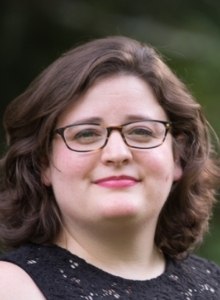
Lauren Bauer
Fellow- Economic Studies, Brookings Institution
Lauren Bauer is a fellow in Economic Studies at the Brookings Institution and is associated with The Hamilton Project. Her research focuses on social and safety net policies, including on federal nutrition assistance programs and education. She is a member of the New York City Office of Community Schools Research Advisory Council and holds a B.A. in history and an M.A. and Ph.D. in human development and social policy with a certificate in education sciences all from Northwestern University. Bauer has served in research positions with political campaigns and as a special assistant in the Office of the Secretary at the U.S. Department of Education.
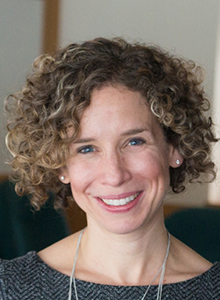
Elizabeth Cascio
Professor of Economics and DeWalt H. 1921 and Marie H. Ankeny Professorship in Economic Policy, Dartmouth College
Elizabeth Cascio is an economist specializing in the study of education and social policy relating to children, often in historical perspective. Her research has frequently drawn inspiration from major policy and demographic shifts in 20th century America, including the spread of publicly funded early education, passage of landmark federal civil rights and education legislation, and rising immigration. Her recent work has focused on childcare and early education and on understanding how policy design, economic conditions, and political voice affect educational attainment and economic mobility.
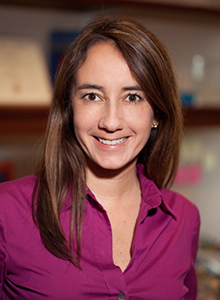
Patricia Cortés
Associate Professor, Markets, Public Policy, and Law, Boston University
Patricia Cortés is an Associate Professor of Markets, Public Policy, and Law at the Questrom School of Business and Associate Director of the Human Capital Initiative at the Global Development Policy Center of Boston University. She is an empirical labor economist working on international migration and gender. In her work, she has studied how low-skilled immigration affects prices and the labor supply of high skilled women in the US, female migration flows in East Asia, the migration of Filipino nurses to the US, and the role of the demand for time flexibility and social norms in explaining gender pay gaps and occupation segregation.
Her work has been published in leading economic journals, such as the Journal of Political Economy, Review of Economic Studies, American Economic Journal: Applied Economics, Journal of Labor Economics, Journal of Human Resources and Journal of Health Economics. Cortes obtained her PhD in Economics from MIT and a Master’s and Bachelor’s degree in Economics from La Universidad de los Andes in Bogota, Colombia.

Matthias Doepke
Professor of Economics, Northwestern University
Matthias Doepke’s research deals with topics in economic growth and development, political economy, and monetary economics. Recently, he has worked on theories of demographic change, family economics, the role of political and cultural change in economic development, and redistributional effects of inflation. He is a research associate of the National Bureau of Economic Research, editor of the Review of Economic Dynamics, and an associate editor of the American Economic Review.
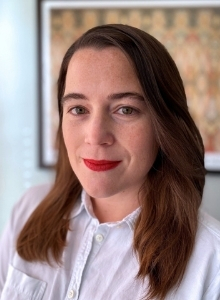
Kathryn Edwards
Economist, RAND Corporation; Professor, Pardee RAND Graduate School
Kathryn Anne Edwards (she/her) is an economist at the RAND Corporation and a professor at the Pardee RAND Graduate School. Her research spans diverse areas of public policy, including unemployment insurance (UI); the science, technology, engineering, and math (STEM) education pipeline and labor market; women’s labor supply; the challenges in retirement facing older Americans; and labor market issues for workers without a college degree. She has worked on projects for the National Guard Youth ChalleNGe program and the recovery efforts in Puerto Rico, as well as on research grants funded by the National Science Foundation and the National Institute of Aging.

Michelle Holder
President & CEO, Washington Center for Equitable Growth; Associate Professor, Department of Economics, John Jay College of Criminal Justice, City University of New York
Michelle Holder is the president and CEO of the Washington Center for Equitable Growth. She is an associate professor at John Jay College, City University of New York. Her research focuses on the Black community and women of color in the U.S. labor market. Named one of 19 Black economists to watch by Fortune magazine, Holder has authored two books, including African American Men and the Labor Market during the Great Recession in 2017 and most recently, Afro-Latinos in the U.S. Economy, published in May 2021.
Holder has been a faculty member at the City University of New York since 2014. Prior to joining CUNY, Holder spent a decade working as an applied economist in the nonprofit and government sectors, including as senior labor market analyst at the Community Service Society of New York and an associate financial analyst and economist at the Office of the New York State Comptroller. She also served for nearly 7 years as finance director at Dēmos. She holds a Ph.D. and an M.A. in economics from the New School for Social Research, an M.P.A. from the University of Michigan, and a B.A. in economics from Fordham University.

C. Nicole Mason
President & CEO, Institute for Women’s Policy Research
Recently named one of the World’s 50 Greatest Leaders by Fortune Magazine, Dr. C. Nicole Mason is the president and chief executive officer of the Institute for Women’s Policy Research (IWPR). For the past two decades, Dr. Mason has spearheaded research on issues relating to economic security, poverty, women’s issues, and entitlement reforms; policy formation and political participation among women, communities of color; and racial equity. At the start of the pandemic, she coined the term she-cession to describe the disproportionate impact of the employment and income losses on women. Dr. Mason is the author of Born Bright: A Young Girl’s Journey from Nothing to Something in America (St. Martin’s Press) and has written hundreds of articles on women, poverty, and economic security.
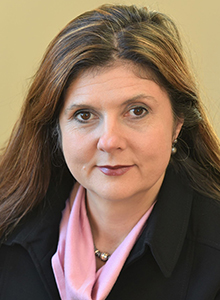
Betsey Stevenson
Professor of Public Policy, Gerald R. Ford School of Public Policy, University of Michigan; Professor of Economics, University of Michigan
Betsey Stevenson is a professor of public policy and economics at the University of Michigan. She is a faculty research associate at the National Bureau of Economic Research, a research fellow of the Centre for Economic Policy Research, a fellow of the Ifo Institute for Economic Research in Munich, and visiting Associate Professor at the University of Sydney. She served as a Member of the Council of Economic Advisers and the Chief Economist of the U.S. Department of Labor under President Obama. More recently she served on the Biden-Harris Transition team assisting with the agency review and policy development for the U.S. Treasury. Dr. Stevenson has published widely in leading economics journals about the labor market and the impact of public policies on outcomes both in the labor market and for families. Her research explores women’s labor market experiences, the economic forces shaping the modern family, and how these labor market experiences and economic forces on the family influence each other. She is the co-host of the podcast Think Like an Economist and is the coauthor of a Principles of Economics textbook. Dr. Stevenson earned a B.A. in economics and mathematics from Wellesley College and an M.A. and Ph.D. in economics from Harvard University.
